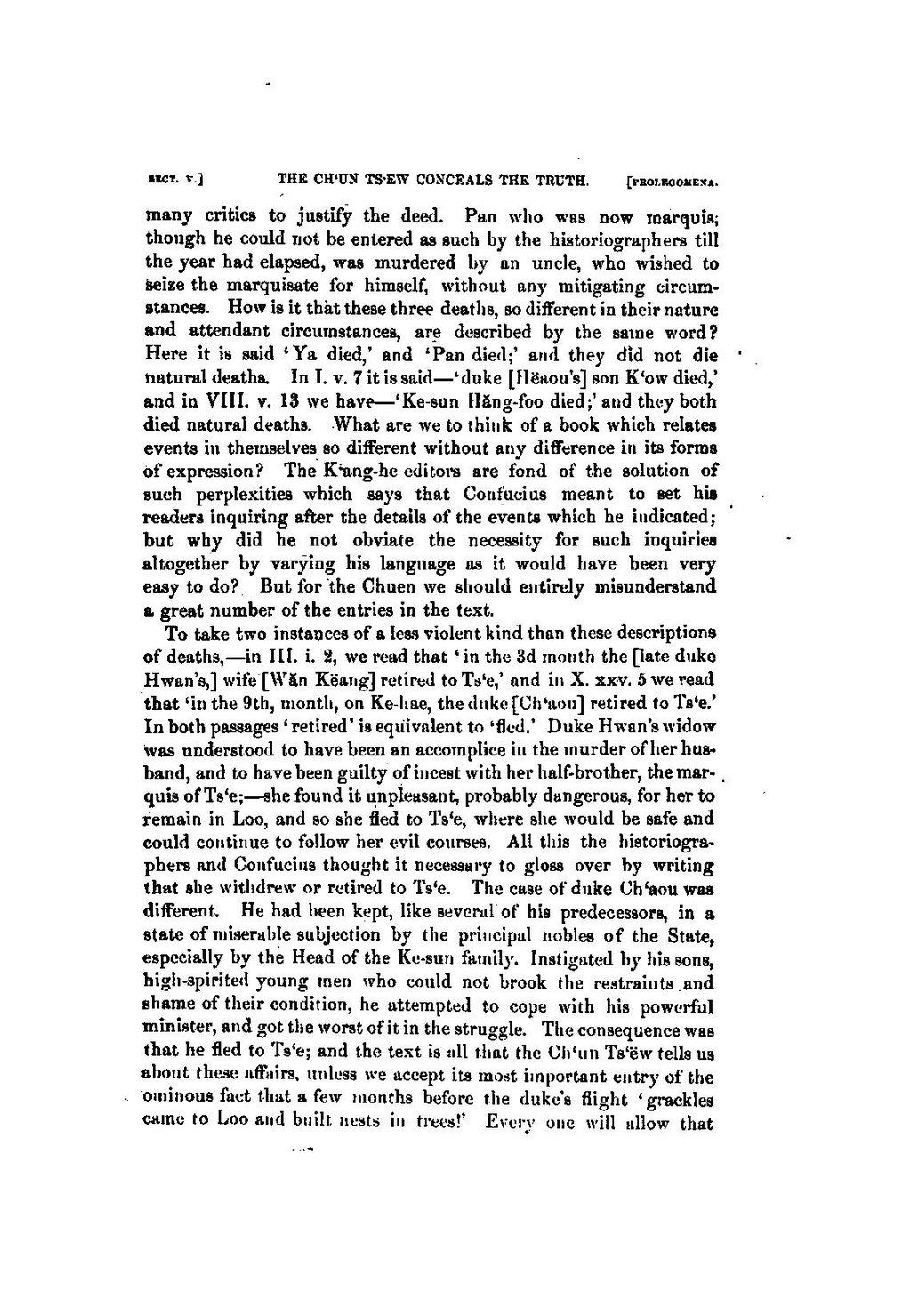many critics to justify the deed. Pan who was now marquis, though he could not be entered as such by the historiographers till the year had elapsed, was murdered by an uncle, who wished to seize the marquisate for himself, without any mitigating circumstances. How is it that these three deaths, so different in their nature and attendant circumstances, are described by the same word? Here it is said 'Ya died,' and 'Pan died;' and they did not die natural deaths. In I. v. 7 it is said— 'duke [Hëaou's] son K‘ow died,' and in VIII. v. 13 we have—'Ke-sun Hăng-foo died;' and they both died natural deaths. What are we to think of a book which relates events in themselves so different without any difference in its forms of expression? The K‘ang-he editors are fond of the solution of such perplexities which says that Confucius meant to set his readers inquiring after the details of the events which he indicated; but why did he not obviate the necessity for such inquiries altogether by varying his language as it would have been very easy to do? But for the Chuen we should entirely misunderstand a great number of the entries in the text.
To take two instances of a less violent kind than these descriptions of deaths,—in III. i. 2, we read that ‘in the 3d month the [late duke Hwan's,] wife [Wăn Këang] retired to Ts‘e,' and in X. xxv. 5 we read that ‘in the 9th month, on Ke-hae, the duke [Ch‘aou] retired to Ts‘e.' In both passages ‘retired' is equivalent to ‘fled.' Duke Hwan's widow was understood to have been an accomplice in the murder of her husband, and to have been guilty of incest with her half-brother, the marquis of Ts‘e;—she found it unpleasant, probably dangerous, for her to remain in Loo, and so she fled to Ts‘e, where she would be safe and could continue to follow her evil courses. All this the historiographers and Confucius thought it necessary to gloss over by writing that she withdrew or retired to Ts‘e. The case of duke Ch‘aou was different. He had been kept, like several of his predecessors, in a state of miserable subjection by the principal nobles of the State, especially by the Head of the Ke-sun family. Instigated by his sons, high-spirited young men who could not brook the restraints and shame of their condition, he attempted to cope with his powerful minister, and got the worst of it in the struggle. The consequence was that he fled to Ts‘e; and the text is all that the Ch‘un Ts‘ëw tells us about these affairs, unless we accept its most important entry of the ominous fact that a few months before the duke's flight ‘grackles came to Loo and built nests in trees!' Every one will allow that
43]
